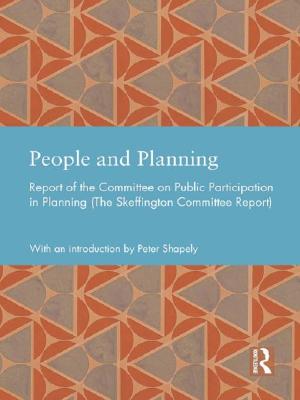Hosted by
People and Planning: Report of the Committee on Public Participation in Planning (The Skeffington Committee Report)
Synopsis
The Skeffington Committee was appointed in 1968 to look at ways of involving the wider public in the formative stages of local development plans. It was the first concerted effort to encourage a systematic approach to resident participation in planning and the decision-making process, in contrast to the entirely top-down process created by the 1947 Town and Country Planning Act.
The origins of the Skeffington Report lay in the 1965 publication by the Planning Advisory Group of The Future of Development Plans, which recommended changes to the planning system to include much greater public participation. It called for all plans to be publicly debated in full, with the opportunity for representations to be made throughout the entire preparation process. There was also a growing realisation of the impact of the American planning experience and a growth of interest in the concept of participatory democracy as opposed to representative democracy.
However, the immediate impact of the Skeffington Committee was limited. It was criticized as being too ambiguous and as encouraging nothing more than greater publicity and as ‘educating’ residents from the planners’ perspective. ‘Participation’ was inadequately defined and the Report was seen to simply promote a more efficient system by convincing people of the virtues of planning. Local authorities used and undermined the idea of participation to simply speed up the planning process by giving their decisions a seal of legitimacy. Technocrats and local authorities simply subverted the ambiguities of the Report for their own purposes.
Yet this is to underestimate the long-term impact of the underlying principles first expressed in the Skeffington Report. It has been a long and tortuous process and in many respects it remains a difficult ideal to implement in an entirely satisfactory and systematic way. Nevertheless, the concept of participation established by the Report has continued to be a central consideration in planning.

